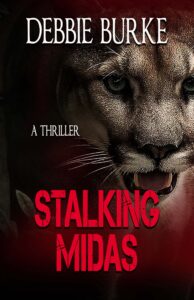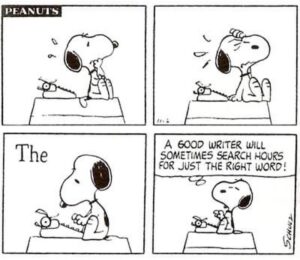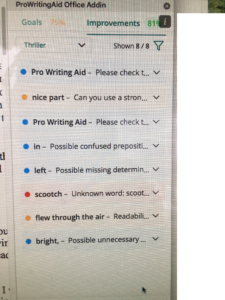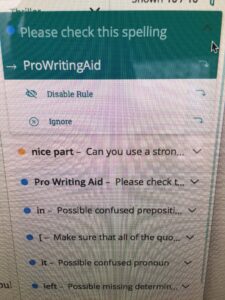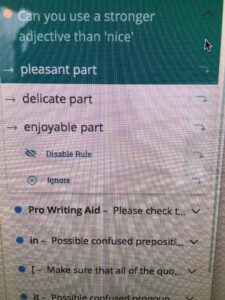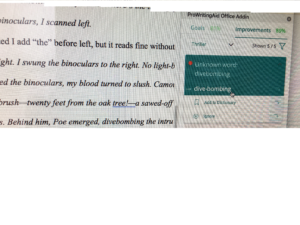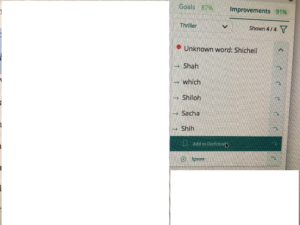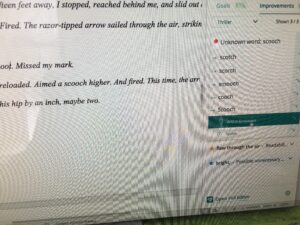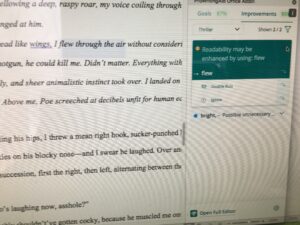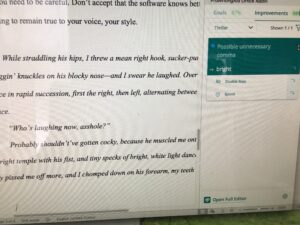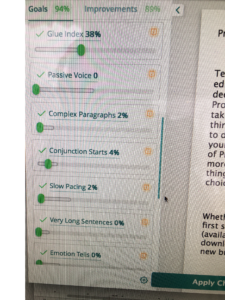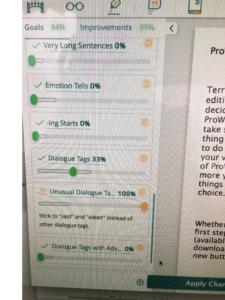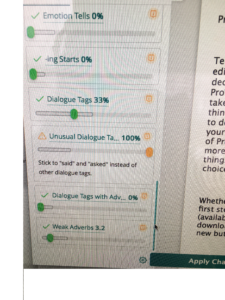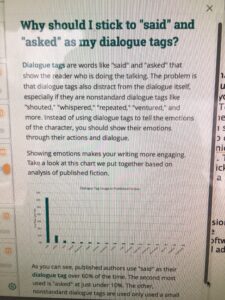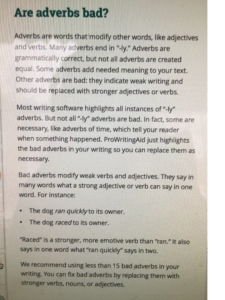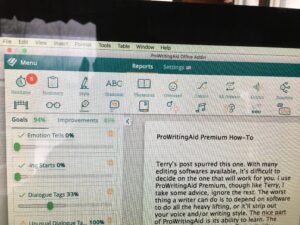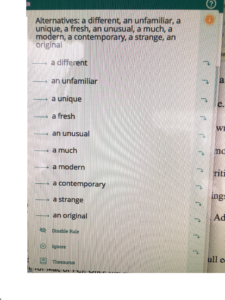Self-Publishing Words of Wisdom
Last September I gave a presentation on self-publishing at the Newport, Oregon Public Library, for the Coast Chapter of Willamette Writers. It was well-attended, and there were a lot of thoughtful questions asked by the engaged audience. One of my challenges was focusing on evergreen advice rather than tips for the passing moment. Digital self-publishing has seen a lot of changes since 2008. Gold rushes have come and gone, as have marketing fads. The market has matured. But, you can still make money, possibly pretty good money, perhaps even enough to live well on, and, as important, you can still reach readers directly.
With that in mind, this Saturday’s Words of Wisdom shares excerpts on self-publishing from past January Kill Zone posts. James Scott Bell gives timeless advice on succeeding as a self-publisher, while Joe Moore gives tips on editing yourself, and P.J. Parrish looks at giving your book covers a makeover. It is always a challenge being selective in choosing an excerpt, but especially today. All three posts are worth reading in their entirety, and I provide links to each below.

So what does all this mean for the indie writer, new and used experienced? Is the “gold rush” over? Is the sky falling?
First of all, just like in the Old West, the gold rush made scant millionaires. There were never going to be abundant strikes except for the few. If the gold rush in digital publishing ever was, it was irrelevant to the vast majority of authors.
Second, the key to making a living as a writer (subtle plug for my book of the same name), has not changed and will never change, because it’s always been the same!
To wit:
You have to write books that are good enough to get the people who read them to want to read more from you, and to recommend you to their friends and social circles.
It doesn’t matter how glitzy your marketing or how cleverly you try to game algorithms. You have to be good at what you do. Imagine that! You get rewarded for merit, not gamesmanship!
And that also goes for discoverability, a word that has overstayed its welcome and is too often used as a Cassandra cloak for expostulations of impending doom.
Phooey.
The indie writers I know who were making a living writing in 2013 were still making a living—and in most cases, a better one—in 2014.
I’ve noticed a few things they have in common:
- They know their craft.All the successful indie writers I know personally paid their dues back in the “trad old days.” They studied and wrote and sacrificed and wrote and submitted and got rejected and kept writing. They spent years getting good at what they do. When the trad publishing contracts started looking grim compared to what self-publishing offered, they jumped in with one or both feet. And they were ready.
So what does this mean for the newbie writer? It means that you must set your standards high and create what I call a grinder. You must set up a system that holds your writing feet to the fire, and makes you get better at your craft.
Early in my career I was fortunate to work with one of the best fiction editors in the business. He would send me long, single-spaced letters, ripping into my books at the plot, character, and style levels.
I feared those letters. I would place them unopened on the corner of my desk and just look at them for a few days. I had to work myself up into readiness. Finally, I would read them several times, highlight things with a felt-tip pen, and then take a few hours to recover. Then I’d start revising.
I also had to get rid of any chip on my shoulder. I had to be willing to make changes. Yes, on occasion there were things I fought for. But I came to realize that this editor knew his stuff, saw things I could not, and thus made me a better writer.
As a new author, you have to figure out a way to get this kind of grinding feedback, and be willing to dig in and work hard. Some time ago I listed a way to do that with beta readers and a professional editor. Look for it within this post.
James Scott Bell—January 11, 2015
The next type of editing is called line editing. Line editing covers grammar and punctuation. Watch for incorrect use of the apostrophe, hyphen, dash and semicolon. Did you end all your character’s dialogs with a closed quote? Did you forget to use a question mark at the end of a question?
This also covers making sure you used the right word. Relying on your word processor’s spell checker can be dangerous since it won’t alert you to wrong words when they are spelled correctly. It takes a sharp eye to catch these types of mistakes. Once you’ve gone through your manuscript and performed a line edit, have someone else check it behind you. A fresh set of eyes never hurts.
On-the-fly cut and paste editing while you were working on your first draft can get you into trouble if you weren’t paying attention. Leftover words and phrases from a previous edit or version can still be lurking around, and because all the words might be spelled correctly or the punctuation might be correct, you’ll only catch the mistake by paying close attention during the line edit phase.
The many stages of editing are a vital part of the writing process. Editing your manuscript should not be rushed or taken for granted. Familiarity breeds mistakes—you’ve read that page or chapter so many times that your eyes skim over it. And yet, there could be a mistake that you’ve missed every time because you’re bored with the old stuff and anxious to review the new.
Read your manuscript out loud, or better yet, have someone else read it to you. Mistakes and poor writing will become obvious.
Spend the time needed to tighten and clarify your writing until there is not one ounce of fat or bloat. And once you’ve finished the entire editing process, put the manuscript away for a period of time. Let it rest for a week or even a month if your schedule permits while you work on something else. Remember that indie publishing means that you set the deadline and pub date. Then bring it back out into the light of day and make one more pass. You’ll be surprised at what you missed.
Joe Moore—January 20, 2016
What I think we should pay attention to is:
- Professionalism
- Consistency of brand
- Messaging
Professsionalism means you can’t get away with a lousy, cheap-looking cover. Because it yells in neon to a potential reader “I am an amateur!” This applies especially if you are just starting out. Like they used to tell us in “women’s magazines” — dress for the job you want, not the one you have. Don’t design your own cover unless you have solid graphic background and even then — GET INPUT! Would you edit your own story? No…you get beta-readers, you hire copy editors. (If you do edit your own books, you’re a fool). You might have to hire a pro to do this. There are lots of good ones out there. Please don’t skimp on this. Please.
Consistency of Brand means your books have to look alike. I don’t mean literally, but they have to all be of a kind so potential readers can immediately sense a unified brand. All good authors do this. And periodically, they go back in and re-design their older books en masse to give them face lifts. Time for an object lesson….
My friend Neil Plakcy (a member of my old critique group) has been publishing his Golden Retriever mystery series for about ten years now. His books are a lot of fun (the dog helps solve the crime), light in tone, but also deal with some serious issues. (his hero did prison time for computer crimes.) Recently, Neil decided he needed a make-over. The first line is before, the second line is after. Click to see enlarged.
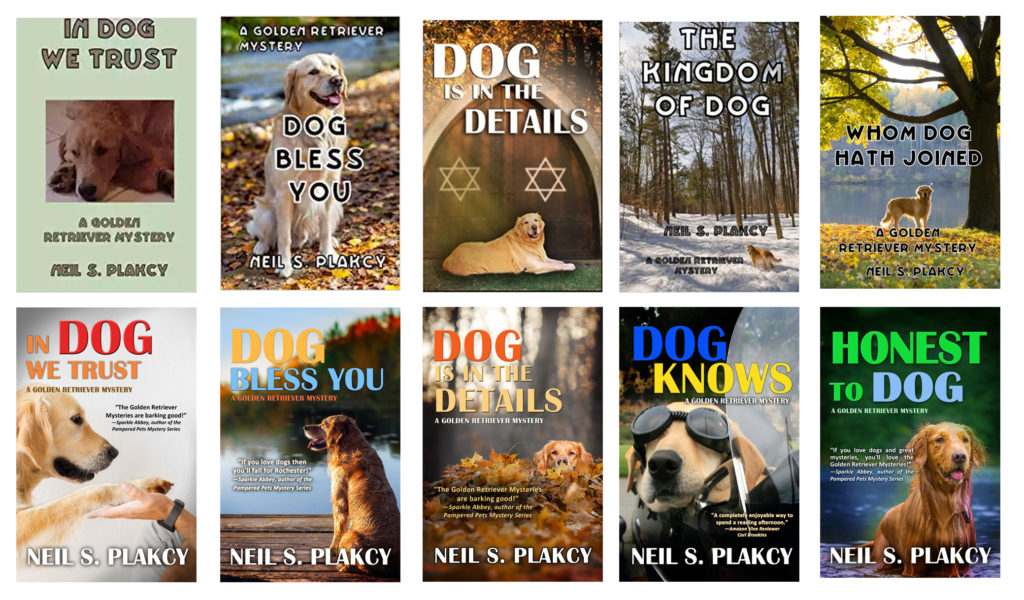
What was wrong with the first ones? Inconsistency in type-faces. Type too small. The main important image (the dog!) was usually too small and static (the dog is just sitting or standing around mainly). No one compelling image for the eye to focus on. The pictures didn’t capture the books’ playful tone. Dull colors. And hard to find Neil’s name!
What is right with the second ones? The type is consistent and DOG is set bigger and in contrasting color to drive home the content in a glance. The subtitle “A Golden Retriever Mystery” is always the same size and in the same place. Neil’s name is consistent and authoritative. There is negative space for blurbs. And the dogs are so cute they make you want to adopt them. These covers look designed, not slapped together.
Disclaimer time: My sister Kelly designed the new covers. She does this as a side business and this is not an infomercial to get her work because I don’t want her attention on anything else but our stuff for now. But she and I also are redesigning our own back list covers. And, I gotta tell you, it’s not been easy.
P.J. Parrish—January 1, 2019
***
Are you a self-publisher?
What evergreen tips do you have?
What constants do you see in self-publishing?



